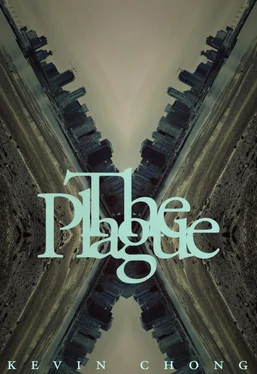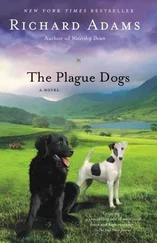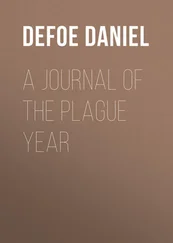This book is dedicated to the kids: Joe and Franny
“Abstractions are fascinating: they can cast light on the past, but not on the present. They can also kill.”
—Kamel Daoud
Setting:
Vancouver, Canada,
in the near future.
The remarkable events described in this narrative took place in Vancouver (traditional territories of the Musqueam, Squamish, and Tsleil-Waututh First Nations) in 201_ and into the following year. For many readers, this will be a tale told once too many times.
The collected literature that treats this historic calamity ranges from medical case study to onstage monologue. It has been offered in film documentary and comic book forms, relayed by storytellers and monologists, authored by those living outside the city, and pieced together from eyewitness accounts. They all attempt a futile struggle: to not forget what happened. Regardless of such efforts, we find that speaking of these events is often considered impolite, so it is mentioned without being named. For all of us, the process of un-remembering is steadfast and systematic.
How is this version of events different from the rest? It certainly offers no new information about the origins of the outbreak. However, the recollections from its primary witness, Dr Bernard Rieux, allow one of the first glimpses of the infection. Woven into this tale is material from Megan Tso, a writer previously known for her work on funerary rites and historical attitudes toward mortality, who was originally visiting this coastal Canadian city for only five days. Another contributor is Raymond Siddhu, a longtime city-hall and health reporter for a Vancouver daily newspaper. Through these three witnesses, we get a glimpse of this city and its people in a light that it was never under and has yet to be seen again. (Although these figures create a polyphonic work, do not consider them a true representation of the city. They represent only the limited social reach of this account’s authors, whose identities will be revealed later. They represent a distinct band of the population—they are well-educated and middle-class. Don’t misinterpret them as archetypes. In fact, they are well-heeled parasites subsisting on the anxieties of a more unreflective larger population.)
Before and after this period, Vancouver was an outpost coastal city in Canada. It was erected at the bottleneck of the province’s lumber and fishing industries, the shiny ring that sealed the exit. Its now-renowned amenities were originally afterthoughts. A large city park was envisioned in a former logging camp and gravesite. An ethnic ghetto for redundant railway workers became a grimy tourist stop. Its public market had been a docking point for houseboats and shacks; before that, it was a fishing spot for the First Nations people (who are notably unrepresented in this tale). In its second century, the city went from resource to resort town. By happenstance, Vancouver’s utility had become its ornament. The coastal mountains were no longer impediments but pretty to look at, and the waterways previously used by pulp mills and canneries were valued as ocean views for luxury homes and playgrounds for paddleboarders. Wealthy migrants were willing to overlook the damp cold of the city’s winter months for its mild summer temperatures, the unceasing greyness and palette of bathwater hues for its clean air.
The people of Vancouver were, as you should expect, difficult to encapsulate. The easy generalization, at the time of the outbreak, was to posit that the city had become the backdrop for the dramas of ultra-wealthy layabouts and the casualties of the recently concluded opioid crisis. Either they emerged from jewel-box McLarens and Teslas like Mandarin-speaking insects between butterfly wings, or they decomposed, forgotten and overlooked in the alleyways. In fact, the city was made up, as it had always been, of people who worked too much for too little.
These people had forsaken living in smoggy metropolises where they could have made real money. They sought what they described as “balance”—in truth, just an abundance of pleasure. But still they felt harried. They worked two jobs or worked long nights at one job so they could spend their days in their studios. They had children with learning disabilities. They were alone but attended a church group. They were the oldest, by a good decade, at the board-game nights hosted at the community centres. They made sure to wish their exes happy birthday by text message. They visited their parents on weekends. They overate on Saturdays and hiked on Sundays. They lived here because they were from here (although no one believed anyone was originally from here). They ended up in Vancouver because no one else was like them where they grew up. They never knew their parents. They never knew their home towns.
This bustle precluded self-examination. Yes, there were activists in the city, but those people seemed unhappy and disagreeable. Others felt trapped in their lives, but didn’t understand their confinement. They thought themselves free—as long as they remained within their own highly rated neighbourhoods and didn’t reach out to where they’d been forbidden. Those without jobs, too rich or too old for employment, filled their days with fitness regimens and classes. They made their own bodies their worksites.
This was a city that had never seen a war. It had never been overrun, sacked, or bombed. An earthquake loomed in the distant future. The citizens rioted at sporting events and outside concerts. They came together for summer fireworks that celebrated … fireworks. As a result, it was an anatomized city, a place in which joys and fears were contained within the spheres of self and family. Among the city’s Indigenous peoples, its immigrant groups, its sex workers and LGBTQ population, collective traumas were experienced but barely heard by the rest of the city—including the figures in this narrative.
The epidemic described in this narrative, which lasted four months and took over fourteen hundred lives, was like an infant’s first nightmare. It was formless and oppressive, stunning in its novelty, and never-ending until you woke from it, patting yourself to see if you remained intact.
The first figure we will meet is Dr Bernard Rieux. His catalytic place in this story and his subsequent role grants him primacy. His status as a male physician also serves to foreground him as a protagonist. But his manner would not otherwise suggest that he fits the role. When it is first necessary to speak of him, it occurs shortly before the key incidents that took place in late October.
It was Halloween. To be more precise, it was a weekday that fell between the weekend when adults celebrated in their costumes and the holiday’s actual date when they dutifully trudged the streets alongside their children. As someone who had no children (and found dressing in costumes distasteful), Dr Rieux was largely oblivious to the trappings of this festivity. He had, however, been awakened at five in the morning by a loud bang. It was a local tradition that fireworks and firecrackers were set off in the days around Halloween. The tradition had taken place for at least a few decades and was routinely decried by concerned citizens calling for a ban. The previous year, fireworks had caused a dog to be spooked and then killed by a SkyTrain car and fireworks were also held responsible when a house burned down another year. According to one blog Dr Rieux read, the peculiar fireworks tradition originated in Guy Fawkes’ Night and could be traced to the city’s British origins. For people who lived in Vancouver, this was how Halloween was experienced. If they relocated to other cities, ex-Vancouverites would wait in vain for the explosions expected at this time of year. Their chests clenched in the evenings whenever they saw a cluster of teenaged boys—knowing that there were people who didn’t habitually flinch in this way.
Читать дальше













